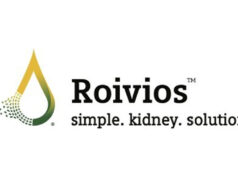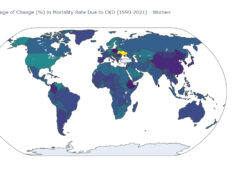Three late-breaking clinical trials presented at the 59th European Renal Association (ERA) congress (19–22 May, Paris, France) have placed increased focus on the need to quickly detect and treat chronic kidney disease (CKD).
Annette Bruchfeld (Karolinska Institute, Solna, Sweden), who is chair of the Scientific Committee and facilitated a press briefing on these new data, said: “CKD is a progressive condition that impacts both life expectancy and quality of life. The results of these late-breaking clinical trials highlight potential new strategies for early detection and treatment of CKD, and its complications, heralding new hope as we work towards ERA’s goal to improve kidney care for every patient.”
The first of these presentations—the THOMAS study—detailed a prospective, randomised trial in which Ronald Gansevoort (University of Groningen, Groningen, The Netherlands) and colleagues evaluated the effectiveness and cost-effectiveness of two different home-based population albuminuria screening strategies.
They concluded that home-based screening for albuminuria in the general population has a high participation rate and identifies individuals with unknown CKD and cardiovascular disease (CVD) risk factors. They also found that both home-based screening strategies were cost-effective when compared to usual care (no screening) to prevent CKD progression and incident CVD.
Further late-breaking research presented at ERA 2022 saw Franz Schaefer (Heidelberg University Hospital, Heidelberg, Germany) and colleagues assess the usefulness of urinary Dickkopf-3 (uDKK3) in determining the short-term risk of CKD progression in children, and identifying those who will benefit from specific treatment to preserve kidney function—concluding that uDKK3 is associated with a greater short-term risk of declining kidney function, which may allow a personalised medicine approach to the pharmacological preservation of kidney function by identifying children who would benefit from intensified blood-pressure lowering.
Finally, data from the TIPS3 trial were delivered on behalf of Johannes Mann (University of Erlangen-Nuremberg, Erlangen, Germany) and an international team from Canada and India. In an effort to assess the effects of aspirin in preventing CVD among CKD patients, they analysed participants in the TIPS3 trial, which saw 5,713 people with and without CKD—but without previous CVD—randomised to receive aspirin, aspirin plus polypill, polypill or respective placebo.
The researchers said their results suggest that the cardiovascular risk in people with CKD may be substantially alleviated either with aspirin alone, or in combination with a polypill—which, in the study, was made up of atenolol, ramipril, hydrochlorothiazide and simvastatin.











